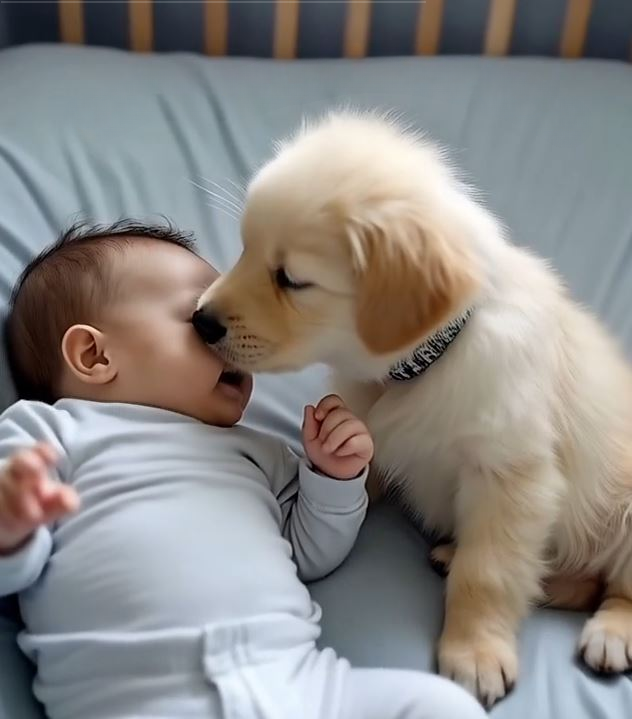The house carried a silence that felt heavy, pressing down like a weight too great to bear. Outside, storm clouds loomed low while the wind scratched against the windows. Inside, all was still—except for Max, a tiny golden retriever puppy, who stood quietly watching Noah.
Noah had been born with a rare neurological condition. The doctors offered little hope—saying he might never walk, never talk, never truly respond. His parents had started to give up, though their hearts never stopped aching for a sign of change.
Max, however, seemed to sense something others could not. From the start, he was different around Noah—not playful, not rowdy, but calm and protective. His little paws carried him always near the boy, as if he knew his purpose.
One stormy night, while Sarah dozed nearby, Max leapt softly into Noah’s crib. He curled his small body around the child who lay so still. And then, something remarkable happened.
The next morning, Sarah woke to a sound she hadn’t heard in months—her son’s faint, raspy laughter.
In the days that followed, Noah began to respond more. He turned his head toward Max’s barks. He made new sounds, small but full of effort. With Max by his side, he even tried sitting up, leaning against the puppy’s warm little frame.
The specialists had no explanation. But to Sarah, the answer was clear—Max had given Noah something medicine couldn’t: hope.
Six months later, Noah was walking with braces, speaking in short bursts, and laughing every single day.
No, Max hadn’t cured him. But he gave Noah a reason to fight, to try, to live.
Sometimes, the quietest companions carry the brightest light. And sometimes, hope arrives on four tiny paws with a golden coat and eyes full of love.








